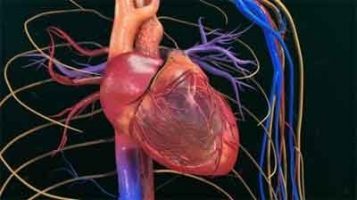- Home
- Editorial
- News
- Practice Guidelines
- Anesthesiology Guidelines
- Cancer Guidelines
- Cardiac Sciences Guidelines
- Critical Care Guidelines
- Dentistry Guidelines
- Dermatology Guidelines
- Diabetes and Endo Guidelines
- Diagnostics Guidelines
- ENT Guidelines
- Featured Practice Guidelines
- Gastroenterology Guidelines
- Geriatrics Guidelines
- Medicine Guidelines
- Nephrology Guidelines
- Neurosciences Guidelines
- Obs and Gynae Guidelines
- Ophthalmology Guidelines
- Orthopaedics Guidelines
- Paediatrics Guidelines
- Psychiatry Guidelines
- Pulmonology Guidelines
- Radiology Guidelines
- Surgery Guidelines
- Urology Guidelines
High blood sugar increases risk of heart failure in diabetics after MI, finds study

High blood sugar increases risk of heart failure in diabetics after MI, finds study.
According to late breaking results from the FAST-MI registry presented today at ESC Congress 2019,after a heart attack, patients with diabetes with high blood sugar are at greater risk of heart failure and subsequent death than those without diabetes.
High blood sugar levels in diabetics slowly attack the artery walls and facilitate deposits of cholesterol. The ensuing lipid-rich plaques can block arteries in the heart, brain, and legs, raising the risks of heart attack, stroke, and claudication with possible amputation.
In theory, high blood sugar levels may impair the capacity of heart cells to contract and propel blood throughout the body, leading to heart failure. However, whether patients with diabetes are at greater risk of developing heart failure when suffering a heart attack has not been extensively studied.
Principal investigator Professor Nicolas Danchin of the European Hospital Georges Pompidou, Paris, France said: "The findings emphasise the importance of preventing diabetes with better lifestyles, including avoiding obesity and overweight with a healthy diet and being physically active. In patients with diabetes, and especially those with coronary artery disease or previous heart attack, we need treatments that reduce blood sugar and decrease the risk of heart failure."
The study used data from nationwide surveys carried out in France between 2005 and 2015 in 12,660 patients hospitalised for a heart attack. The researchers analysed whether diabetic patients were more likely than non-diabetic patients to develop heart failure during their hospital stay and in the year after. In patients with diabetes, they compared five-year mortality in those readmitted for nonfatal heart failure during the year following their heart attack versus those who did not develop heart failure.
Nearly 25% of patients hospitalised for an acute myocardial infarction during the ten-year period ad known diabetes (3,114 of 12,660 patients). "This figure is consistent with what most cardiologists have found among their heart attack patients and illustrates how common diabetes is," said Prof Danchin.
During hospitalisation for myocardial infarction, 32% of patients with diabetes developed heart failure compared to 17% of patients without diabetes. After adjusting for other factors that could cause heart failure, those with diabetes had a 56% higher risk than those without of developing heart failure.
Likewise, in those who survived the heart attack, 5.1% of diabetic patients were hospitalised for nonfatal heart failure in the following year compared to 1.8% of non-diabetic patients. After adjustment, this equated to a 44% raised risk of heart failure in those with diabetes.
Finally, among patients with diabetes who were alive one year after their heart attack, 56% of patients who had been hospitalised for heart failure during that year died during the subsequent four years compared to 21% of those without heart failure. After adjustment, this amounted to a 73% higher risk of five-year mortality in those with heart failure. The increased risk was particularly marked for diabetic patients requiring insulin.
Prof Danchin said: "Our study shows that diabetes is associated with a considerably increased risk of developing heart failure after a heart attack. Furthermore, diabetic patients who develop heart failure in the year after a heart attack have a much higher risk of dying in the following years."
He concluded: "More efforts are needed to prevent diabetes. In addition, better management is required for diabetic patients who have a heart attack to avoid heart failure and its detrimental long-term consequences."
blood sugarblood sugar testdiabetesdiabetes insipidusDiabetes Mellitusdiabetes symptomsDiabeticsFasting blood sugarfindsfirst aid for heart attackgestational diabetesheart attack causesheart attack preventionheart attack symptomsheart attack symptoms warning signsheart attack treatmentheart failureheart-attackhighhow to prevent heart attackincreasesinsulininsulin dosageinsulin injectionMImini heart attack symptomsnormal blood sugarnormal blood sugar levelrisksigns of a heart att
Next Story
NO DATA FOUND

Disclaimer: This site is primarily intended for healthcare professionals. Any content/information on this website does not replace the advice of medical and/or health professionals and should not be construed as medical/diagnostic advice/endorsement or prescription. Use of this site is subject to our terms of use, privacy policy, advertisement policy. © 2020 Minerva Medical Treatment Pvt Ltd